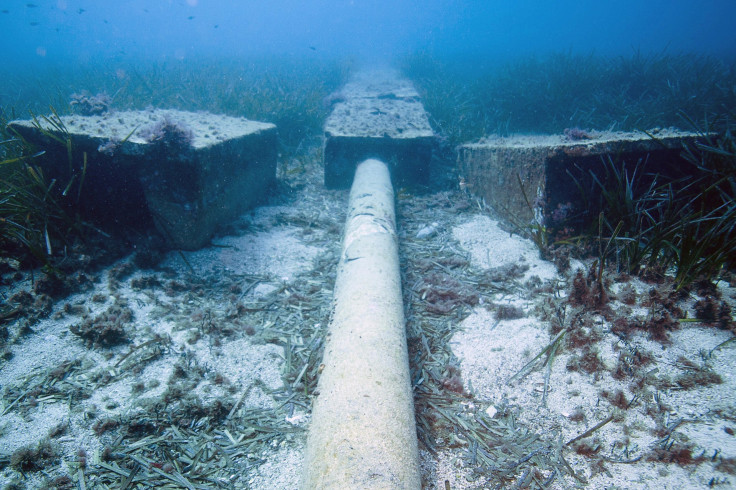WATCH: Contaminated Blood From Salmon Plant Piped Into Public Waters

A shocking video captured the disturbing practices of the salmon farming industry, where potentially diseased “blood water” is dumped into the public waters off Vancouver Island, and raised concerns that it might be harming the natural environment, reports said Wednesday.
The video, taken by British Columbia photographer Tavish Campbell, showed how a Canadian salmon company uses underwater pipes to pump out bloody effluent into public waterways, where it can infect fish and threaten the ecosystem. He discovered the pipe connected to the Brown's Bay Packing Company near Campbell River in British Columbia on the east coast of Vancouver Island.
“Investigative dives at two farmed salmon processing plants reveal a shocking and horrendous secret hidden below the surface,” diver Tavish Campbell wrote in the video’s caption, which was posted a month ago, but became viral on the internet in the last few days. Campbell posted it on his Vimeo (video-sharing website) account, which was viewed over 200,000 times at the time of publishing this story.
"Bloody effluent, untreated and infected with piscine reovirus, is being dumped into the pristine waters," the video caption added.
Although it is perfectly legal for now, the video footage has prompted an investigation by Canadian authorities into the matter.
"Are we crazy? We all know blood carries viruses. This is an infectious disease," Campbell said in the video.
"My underwater camera lights illuminated the blood in such a way that it was shimmering with scales, so there were tons of little chunks of blood and scales and small pieces of offal mixed in there," Campbell told the media.
The footage was gathered by him throughout last year and posted online last month, which sparked an investigation into the farmed fish plant that is responsible for spewing the blood into the waterways.
"We are in the process of reviewing what is happening at that particular plant," Canada’s Environment Minister George Heyman said. "British Columbians really expect us to keep our water safe and protect our wild salmon, so that’s our intent."
Concerns are being raised that the effluent can be infected with piscine reovirus, which is a highly contagious virus that most farmed salmon in Canada carry. The virus has been associated with heart and skeletal muscular disease (HSMI), which is said to make fish lethargic and thus more vulnerable to predators, but isn't harmful to human beings.
© Copyright IBTimes 2024. All rights reserved.






















